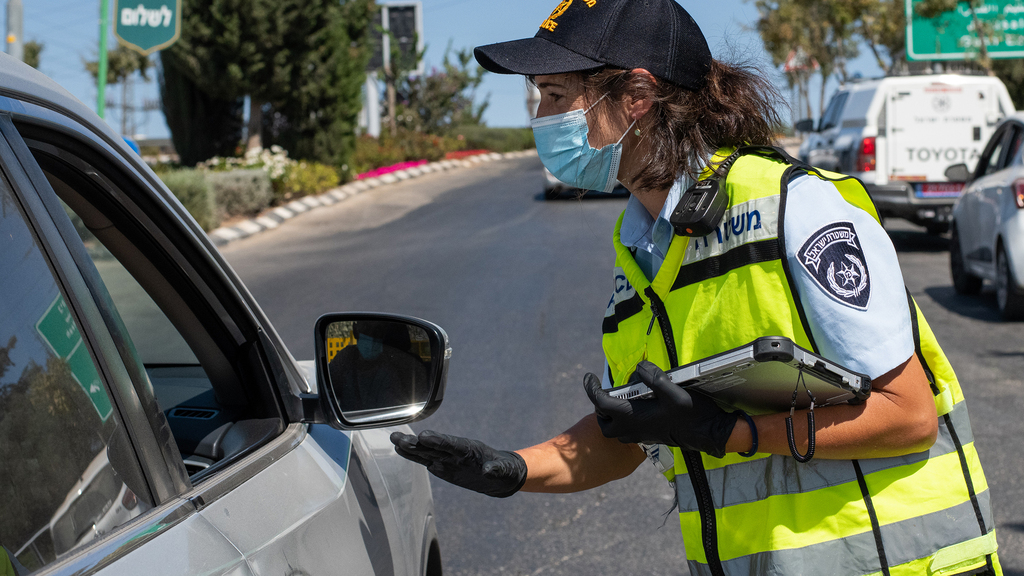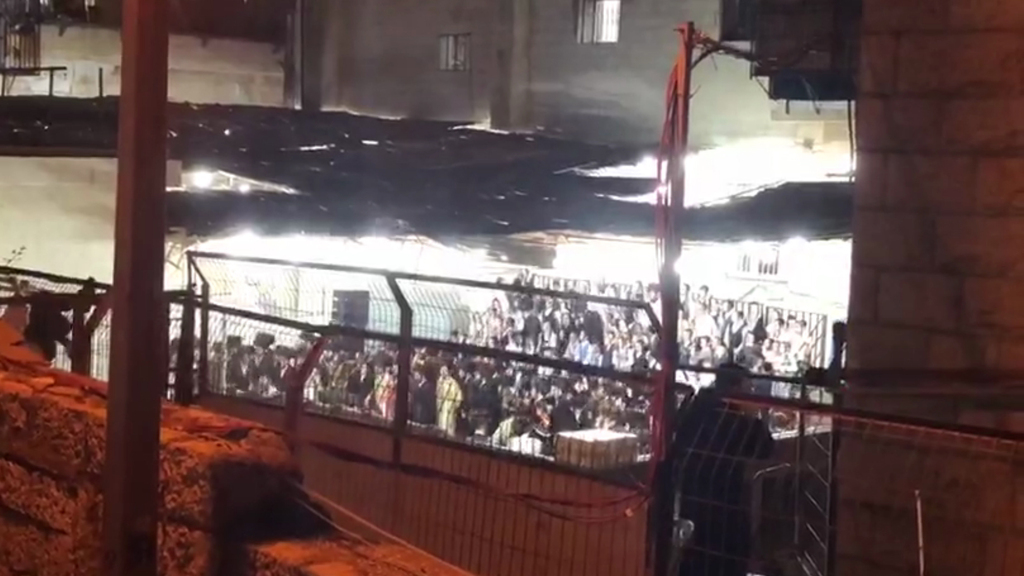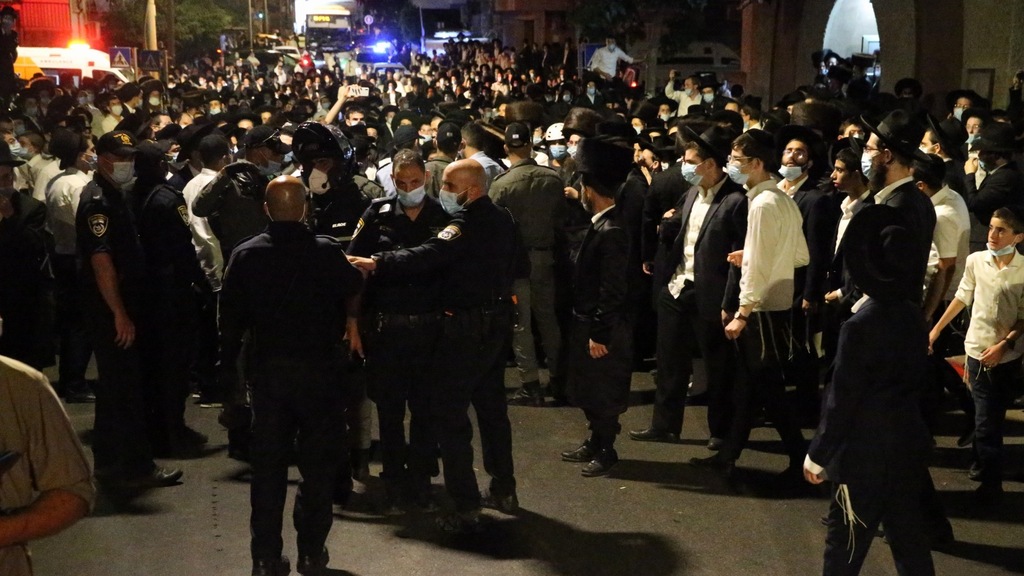Getting your Trinity Audio player ready...
We all hope that this time round, Israel's lockdown exit strategy will be more tempered and careful than it was after the first lockdown in spring, and we also hope the assurances we are given of a gradual opening over time will come to pass.
But before any easing of restrictions can be discussed, there must be a decision to extend closures on areas with high rates of infection in order to prevent further spread of the coronavirus and avoid a third, more devastating lockdown three months down the road.
3 View gallery


Police enforce lockdown restrictions in the ultra-Orthodox settlement of Beitar Illit
(Photo: Shalev Shalom)
This government has already failed to enforce mitigation measures in ultra-Orthodox cities and neighborhoods.
In August, ministers approved a "traffic light" plan proposed by the coronavirus czar, Prof. Ronni Gamzu, with every area in Israel defined as red, orange, yellow or green depending on their levels of infection.
On September 3, the cabinet voted to restrict movement out of cities with high rates of contagion, defined as red zones. But within just three days, ministers succumbed to pressure from the affected municipalities, and opted only to impose a nighttime curfew.
It was just one week later that the inevitable decision was made to shut down the entire country for a second time as infection rates spiraled.
3 View gallery


Ultra-Orthodox Israelis congregate inside in violation of restrictions in Jerusalem earlier this month
It is unclear whether the steps approved and then immediately discarded would have prevented the need for a full lockdown, but it is clear that avoiding them left ministers with no other option.
The advantages of localized management of the coronavirus spread were evident in the Arab sector, which successfully reduced morbidity. Contagion rates in Arab cities, which were among the highest in the country, are now lower than in the general population.
Their success can be attributed to Muslim religious leaders who took it upon themselves to enforce strict measures to stop the spread of the disease - including shutting down mosques. This is a complete contrast to the Haredi communities, which have actively opposed all mitigation efforts and health directives.
Now, 40 days after the government's unfortunate capitulation to pressure by ultra-Orthodox mayors, the same dilemma is once again before the cabinet.
3 View gallery


Police attempt to prevent large gathering of ulltra-Orthodox men in Bnei Bark earlier this month
(Photo: Shaul Golan)
Unless local lockdowns are imposed in areas with increased morbidity, Israel's coronavirus case load will remain high.
Local authorities are best positioned to manage the pandemic in their jurisdictions, having intimate knowledge of each neighborhood and the needs of each community.
The focus must be reducing the number of people with COVID-19 and preventing the spread of coronavirus to others without imposing more restrictions on the general population. It is inconceivable to lock people in their homes in cities that have not seen a widespread of the virus.
There are more than 40 jurisdictions that qualify as red zones, with a predominately ultra-Orthodox population. They have seen high contagion rates for a while now and are slower to flatten the curve than anywhere else in the country.
These areas must remain locked down. There must be strict enforcement in those cities, with zero tolerance for violation of directives.
At this critical juncture in our fight against coronavirus, we need our leaders to show some personal and public courage, to set aside their political agendas and follow the advice of experts who have proposed a gradual and careful reopening of the economy.
If they buckle once again under pressure from the Haredi sector, they will undoubtedly lead us over the cliff to a catastrophic plunge.

